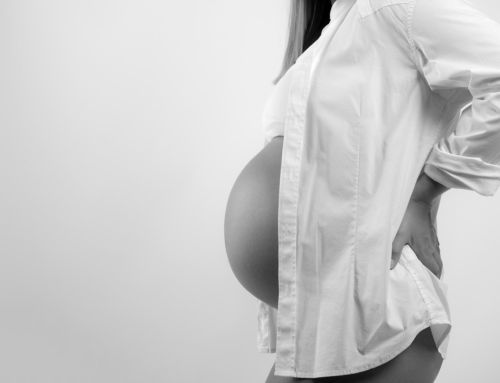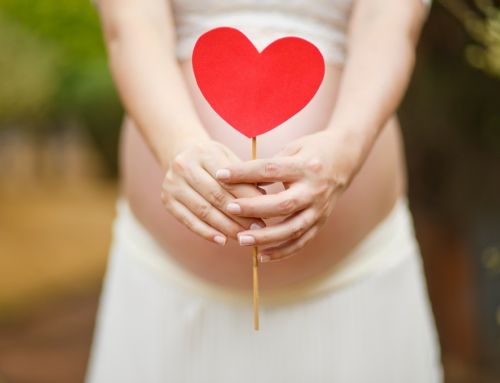Food You Must Have While You Are Pregnant
When you are pregnant, the first thing that comes to mind is if your are taking proper food that can help your baby in his growth and development. Even if you are following big list of supplements. you might still worry that you’re not taking in enough of the right stuff. Learn about some pregnancy powerfoods that packs plenty of vitamins and minerals in just a few couple of bites.

Pregnancy is a very crucial stage in women’s life. During this time, you need to take care of yourself the unborn child developing inside you. Maintaining a healthy diet during pregnancy is very important, because your body needs additional nutrients, vitamins and minerals to support the little one inside your body. As suggested by doctors, body of a pregnant women need 350-500 extra calories each day in her second and third trimester. Any lack in the intake of key nutrients may affect the baby’s development and may also result in birth complications.
Maintaining a healthy diet will ensure good health of both mother and the baby. In fact if you take a rich diet, it will a lot easier to lose the pregnancy weight after you give birth. To make it easier we have listed all the key food that are rich in all the vital nutrients and should be included in your diet while you are pregnant.
Broccoli and Dark, Leafy Greens
Green vegetables such as spinach, kale is rich in antioxidants which are a great benefit for immune system and are rich in fiber, vitamin C, vitamin K, vitamin A, calcium, iron and potassium. Fiber rich food item helps in preventing constipation, which is a very common problem among pregnant women.
Berries
Berries contain water, carbs, vitamin C, fiber, vitamins, antioxidants and plant compounds. They may help pregnant women increase their nutrient and water intake. In fact they are great for snacking hence avoiding intake for any junk food items. Try indulging with berries as much possible as they are natural with almost zero risk of any spike in blood sugar.

Whole Grains
Whole gains are a great source of fiber, vitamins and plant compounds that help women meeting their needs to have some extra calories during their second and third trimester. Oats, Quinoa contain fair amount of protein, and rich in vitamin B and magnesium which is most commonly noticed lacking in pregnant women.
Dried Fruits
Dried fruit may be highly beneficial for pregnant women since they are small and have larger percentage of vitamins and minerals. Although they only contain natural sugar, make sure to limit your portions and avoid candied varieties, to prevent excess sugar intake.
Avocados
It is a rich source of potassium which helps providing relief to leg cramps and also contributes significantly to fetal health. Avocados has high content of healthy fats, making it a good choice for pregnant women.
Fish Liver Oil
A single serving (one tablespoon or 15 ml) of fish liver oil provides sufficient amount of omega-3 fatty acids, vitamin D and vitamin A. Fish liver oil may be particularly important for women who don’t eat seafood or are vegetarian.
Light Meat and Eggs
Pregnant women need more iron which is an essential mineral that is used by red blood cells. Low level of iron during pregnancy increases the risk of premature delivery and unhealthy baby. Egg is referred to as a very health food which contain almost all the nutrients in small quantity. Eggs are rich in Choline which is also essential for pregnant women. Low Choline intake can lead to decreased brain functions in the fetus.
Salmon
Salmon contains the essential omega-3 fatty acids EPA and DHA, which are important for brain and eye development of your unborn child. It’s also a natural source of vitamin D.
Dairy Products
Pregnant women need extra calcium as their body calcium is consumed by baby in the development of his bones. Dairy is the best dietary source of calcium, and provides high amounts of phosphorus, various B vitamins, magnesium and zinc. Yogurt is very beneficial for pregnant women. It contains more calcium than most other dairy products. Some varieties also contain probiotic bacteria, which support digestive health. These bacteria reduces the risk of complications such as gestational diabetes, vaginal infections and allergies.

Closing Note: What is eat is more important than how much you eat during this crucial stage of life. If you are following a heath diet from the beginning then there no need to add extra calories in the first trimester and later you can add 300-500 calories in second and third trimester. Gaining weight during pregnancy is normal, but it’s important to gain it in a healthy way. This benefits you, your baby and your health after the pregnancy.






